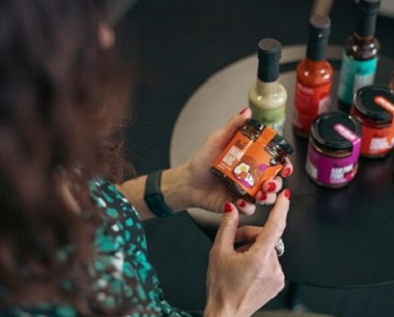More than a third (39%) of Brits have noticed an increase in unusual bugs and insects not common in the UK, crawling around their homes and gardens and nearly a quarter (24%) have been bitten or stung more in the past year. So, it’s no wonder that as a nation, we have some interesting ways of dealing with these unwelcome critters, according to a new survey by Anthisan Bite & Sting Cream.
The research of 2,000 UK adults revealed that over a quarter of Brits (26%) are ‘stampers’ who use their feet to quickly remove any threat of bugs bothering them. In contrast, nearly one in five (18%) prefer to hoover them up and 17% choose to flush creepy-crawlies down the toilet. Close to a third of Brits take a slightly kinder approach using a glass and piece of paper (30%) to collect them, whilst (32%) throw them out of the window. The survey also revealed that 9% of petrified Brits scream and run at the first fright, whereas 15% shout to their other half to remove bugs and insects for them.
More than a third of people (35%) admit to being afraid of being bitten or stung in the summer months, as nearly a quarter (24%) say they have noticed bugs and insects getting bigger in recent years. According to the survey, the top five most feared creepy-crawlies are wasps, hornets, spiders, mosquitoes and ticks, all of which are extremely common in the UK.
Dr James Logan, from the London School of Hygiene and Tropical Medicine, comments, “There is evidence that more people are being bitten by insects in the UK and Europe than in the past and this is likely to be due to an increase in the insect populations and climate change bringing more favourable environmental conditions for biting insects like mosquitoes"
It is no longer just tropical countries that are exposing people to these creepy-crawlies as the warmer, wetter weather means that Britain’s back gardens are becoming the perfect breeding grounds for mosquitoes and other biting bugs and insects. According to the survey, 68% have been bitten or stung by mosquitoes and midges in the past year.
More than half (51%) of Brits worry about foreign venomous spiders, bugs or insects travelling to the UK1. But the threat to UK shores can no longer be ignored, with at least one in 10 (10%) saying they have spotted foreign bugs such as Asian Tiger Mosquitoes and Black Widow Spiders in their back gardens or homes.
Dr James Logan continues, “Britain is already home to more than 30 species of mosquitoes, the majority of which will bite humans and some of which are capable of carrying diseases such as malaria. Southern regions of England may become warm enough to support mosquitoes, like the Asian Tiger Mosquito that have the potential to spread diseases.”
Results of the Anthisan survey also reveal that people are being bitten or stung when enjoying time outside in the following places1: at least one in 10 (11%) said they have been bitten or stung whilst having a BBQ, 8% while enjoying a festival and 13% when taking a long walk in a field.
More than half of the people surveyed (53%) said August was the most common month they were bitten or stung in the last year, with one in 5 (18%) stating that the most common time of day to be bitten or stung was early afternoon, dusk (19%) or early evening (21%).
People’s reactions to bites and stings also varied, with some experiencing inflammation (69%) or a skin rash (37%) and more than one in 10 (11%) suffered with painful or swollen joints1. Surprisingly though, two fifths (41%) admitted not taking any preventative measures against bites or stings. Of those that did, nearly a third (30%) said they used an insect repellent or opted to wear clothing to cover their arms and legs (28%). In some extreme cases however, nearly one in 10 chose to stay at home (8%) and 13% avoided wearing deodorant, perfume or aftershave to keep the bugs at bay.
Dr James Logan says, “There are of course preventative measures people can take to minimise the risk of being bitten or stung, such as wearing loose clothing with long sleeves and trousers, the reality however, is that despite our best preventative efforts, we’re all at risk of getting bitten or stung whether inside or outside of our homes.”

















